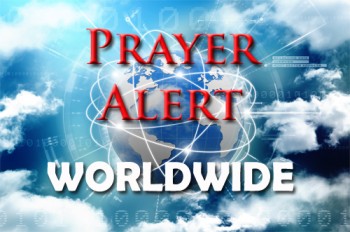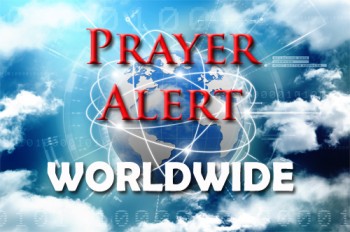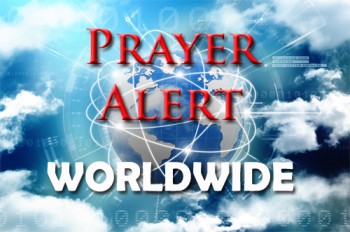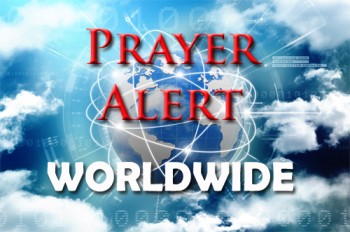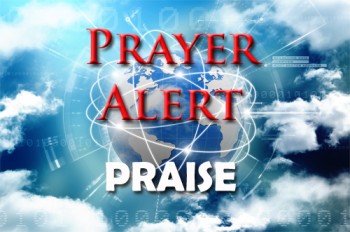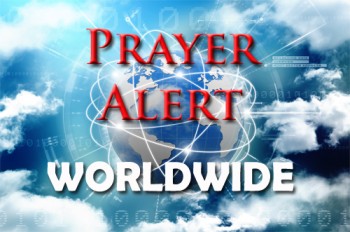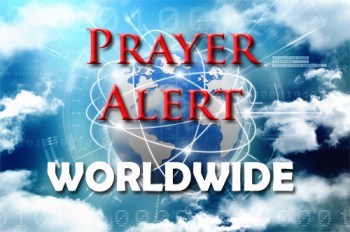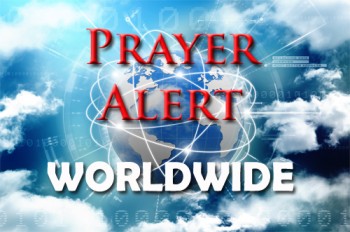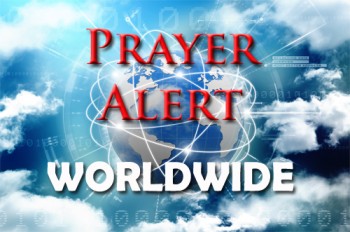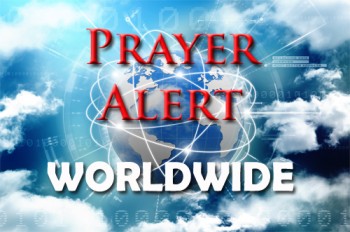Displaying items by tag: Africa
Congo: fears of fresh eruption
As the death toll increased to 32 from recent volcanic action, the lava lake in Mount Nyiragongo’s crater has refilled, prompting fears of new fissures or another eruption. Residents who fled from the eruption are slowly returning to their homes but authorities have urged caution. Powerful aftershocks are rocking the area every ten to fifteen minutes. Cracks over an inch wide appeared in the ground and on roads in several areas, including near the main hospital in Goma, a city of two million people where people are confused and don’t know which way to go. Some are returning to homes (if homes are undamaged); more are leaving, and all are afraid even though the lava flow has stopped. Earthquakes are not decreasing in size or frequency. Efforts are continuing to reunite several hundred children who were separated from their families as they fled.
Nigeria: don’t forget Leah Sharibu
Leah Sharibu was 14 when she was abducted in 2018 by Islamic State West Africa Province (ISWAP). She defied the terrorist group, a splinter group of Boko Haram, when they abducted 110 girls from school. ISWAP released 104 of them a month later; five died, and Leah was the only one not freed because she refused to renounce her Christian faith. President Buhari pledged to secure her freedom during his visit to the USA. In London, he told the Archbishop of Canterbury he is working quietly to free her. In January 2020 there were reports that Leah had had a baby. In March 2021, rumours surfaced that she had given birth to her second child. Her parents said that the government had not helped them secure Leah’s release; they rest their hope in God, not government. Her mother Rebecca said, ‘By the grace of God. I have not lost hope because God is in control and people are praying.’
Nigeria: ‘Bring back Chibok girls’
Attendees at the Bring Back our Girls conference heard that twenty parents have now died before being reunited with their daughters. ‘I’m Chibok girl Dad. Bring Back Our Girls Now’, read the white letters on one man’s red T-shirt. On 15 April seven years ago, he woke to hear his daughter had been abducted from her school. He has not seen her since and has no idea if she is alive, but amidst his anguish he pleads, ‘Our people are being killed on a weekly basis’. 112 Chibok girls remain unaccounted for. The dad pleaded, ‘ Why has the government abandoned us? I appeal to Governor Zulum to bring peace to our land’. ‘No amount of intimidation will stop us demanding the girls’ rights’, said another parent. There have been three attacks this week in Damasak town, 200 miles north of Chibok, this time by an IS group which has splintered away from Boko Haram.
Burkina Faso: more attacks generate more fear
The army in Burkina Faso needs to contain spreading violence by al-Qaeda and IS. More than thirty men, women, and children were killed by 100 rebels burning down homes and shooting people trying to escape. Survivors are praying for peace and are very afraid. One week earlier two Spanish journalists and an Irish conservationist were killed, and a soldier went missing when an anti-poaching patrol was ambushed by rebels. Another 18 people were killed in a different village. Last year the government enlisted volunteer militiamen to help the army, but they incurred retaliation by the rebels attacking them and the communities they helped. Armed groups have driven religious and ethnic tensions between farming and herding communities in Mali, Burkina Faso, and Niger to boost recruitment among marginalised communities. The UN said worsening violence has led to one of the world’s most acute humanitarian crises.
Help for South Sudan
The EU has joined the United States in sending humanitarian aid to South Sudan. Contributions of more than $145 million will provide food, medical aid, and shelter. World Concern’s Joshua Bundi says the help could not have come at a better time. South Sudan is on the brink of famine thanks to the fallout of several compounded crises. Bundi said. ‘We’ve had the worst flooding in modern history. Over eight million South Sudanese need humanitarian aid to survive another day; half of them are children. Thankfully, hope reigns triumphant in South Sudan.’ The church is meeting the needs of the people and preaching the gospel.
Nigeria: Christian students kidnapped and tortured
Gunmen abducted 39 students, most of whom are Christians, from a college in Kaduna state on 11 March. An armed gang raided the college in Kaduna at 9.30 pm, shooting indiscriminately and rounding up 219 people. Of these, 180 were rescued by the army soon afterwards. Several videos have been released showing the 39 abducted students being threatened, beaten, and whipped. In another video, a male student (named Emmanuel) being held at gunpoint pleads with the government to intervene. He added, ‘Many of us here have been injured - badly injured. Most of us here have health issues.’ Meanwhile we can praise God that Pastor Yakuru, kidnapped by Boko Haram on Christmas Eve 2020, was released on 3 March, the day the terrorists said they would execute him. His release was negotiated by the department of state services and a national charity.
Eritrea: Christian detainees
Eritrea remains one of the worst countries in the world for Christian persecution. Imprisoned Christians are tortured, starved, and forced into hard labour. Conditions are worse for pastors and theological students who are singled out for beatings or have their jail terms extended as a warning to others. Many Christians are held indefinitely, often without trial, not knowing when they will be released. Some are kept in shipping containers, where they are exposed to the searing desert heat by day and cold by night. 69 Christian prisoners were released in September 2020 in Covid-19 control measures. Most had been held for over ten years without trial, some for 16 years. The releases were made on condition that bail securities were lodged, usually in the form of property deeds, with guarantors held liable for the detainees’ future actions. None of the known imprisoned pastors or senior Christian leaders were among those released. Tens of thousands of Christians have fled from Eritrea to Ethiopia, Sudan, Uganda, and Israel.
Nigeria: under attack
Nigeria was the country with the most Christians killed for their faith last year. In overall violence, it was second only to Pakistan, and it trailed only China in the number of churches attacked or closed. Nigeria also led the world in the number of kidnapped Christians last year and broke into the top ten countries for the first time, where it is most difficult to be a Christian, jumping to number 9 (from 12 last year). On 2 April you were asked to pray for the release of eight Christians who were abducted on their way to evangelise in Kaduna state. This week we can thank God that our prayers have been answered, and they were freed and taken to hospital for checkup and tests.
Eritrea: Christians behind bars
Believers can languish in captivity for years in Eritrea. ‘They often aren’t even charged with anything and they don’t go to court’, said Greg Musselman from Voice of the Martyrs. In an unexpected move, Eritrea’s government released dozens of prisoners in late February. Many believers thought, ‘things are changing!’ But Musselman said, ‘The Eritrean government may be trying to curry favour with Ethiopia, their neighbouring country, because the prime minister there is a Christian. As recent arrests show, these changes were too good to be true. Our hopes that the Eritrean government was loosening its grip on evangelicals now seem to be going in the opposite direction. Eritrea is claiming religious freedom, but that’s not happening at all.’
Mozambique: MSF helping thousands
Doctors Without Borders (MSF) said they will continue to work around the clock assisting thousands of people evacuated from the shores of Palma after violent attacks by insurgents. At the seaport of Pemba MSF teams have been assisting refugees who are scared, traumatised, hungry and desperate. Project director Luiz Guimaraes said, ‘We have three mobile clinics around Pemba city. We provide for 400 to 450 consultations per day.’ He said that out of fear people fled, walking long distances on foot without food and shelter. Teams are also assisting with water and sanitation, as people need clean water to drink. ‘In this situation, they drink dirty water, and they have a lot of diseases caused by waterborne pathogens.’ He said that they had also implemented mental health services to help people cope with their traumatic experiences. Pray for God’s peace to comfort the refugees.
